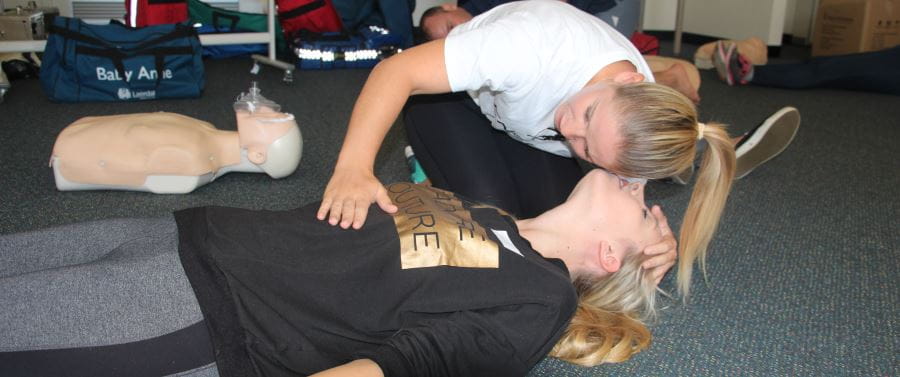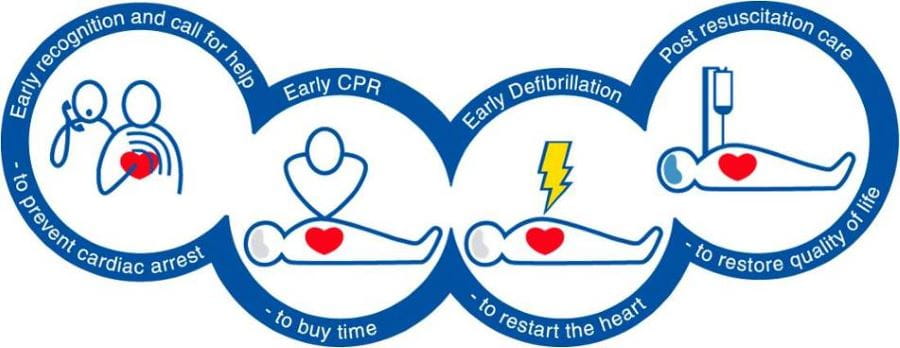
Would you know what to do if someone collapsed in front of you? Their survival could be down to you – could you help them?
While heart-attack victims typically experience symptoms prior to an emergency, around 50% of sudden cardiac deaths occur without prior signs or symptoms.
Unfortunately, even with a 10-12 minute ambulance response time, the best chance for survival lies in a strong Chain of Survival. The Chain of Survival is a series of steps which can improve the chances of survival and recovery for victims of cardiac arrest.
Chain of Survival steps
Early Recognition and Call for Help
The sooner you can call the emergency services, the better. Call 000.
The signs of cardiac arrest include:
- Sudden collapse
- Loss of consciousness
- No sign of life
Early CPR
Cardiopulmonary resuscitation (CPR) should be commenced immediately after a cardiac arrest has occurred. Anyone can perform heart compressions. Anyone can perform CPR and a casualty who is in cardiac arrest would benefit greatly from bystander CPR.
Early Defibrillation
A defibrillator is an electrical device that delivers a shock to the heart in an attempt to correct abnormal electrical activity. In basic terms, a defibrillator attempts to restart the heart into a normal beating rhythm. Early defibrillation is associated with better survival from a cardiac arrest.
Post-resuscitation care
Appropriate advanced post-resuscitation care in a hospital is essential to improving long-term survival for the patient. This care should be accessed as quickly as possible after the cardiac arrest has occurred. Post-resuscitation care refers to the care provided pre hospital by an ambulance service and includes things such as medications, advanced airways, reversing reversible causes etc, to increase chance of survival to hospital.

This information is NOT a substitute for first aid training. Royal Life Saving Society WA recommends that everyone is trained in first aid and CPR.
Why Learn first aid and CPR?
Learning first aid can save lives. People die every day from sudden cardiac arrest, because family members, friends, and bystanders don't know how to respond effectively. Cardiopulmonary resuscitation (or CPR) is easy to learn, and our training is available all over the Perth and regional areas of Western Australia to instruct people how to deal with cardiac arrest, and many other life threatening emergencies. Learning first aid is a simple way to save a life. You can prepare yourself to act in an emergency by attending one of our many first aid training courses. Please remember that "Everyone can be a lifesaver".
